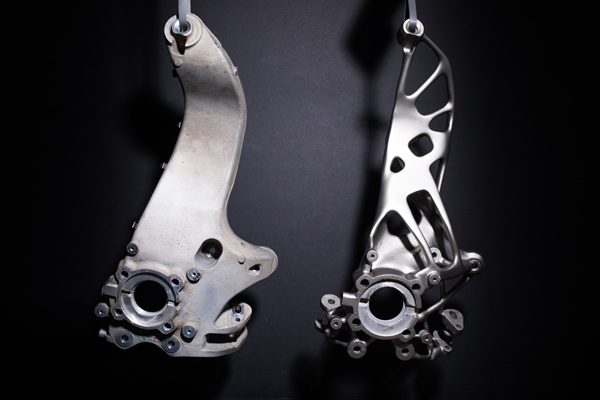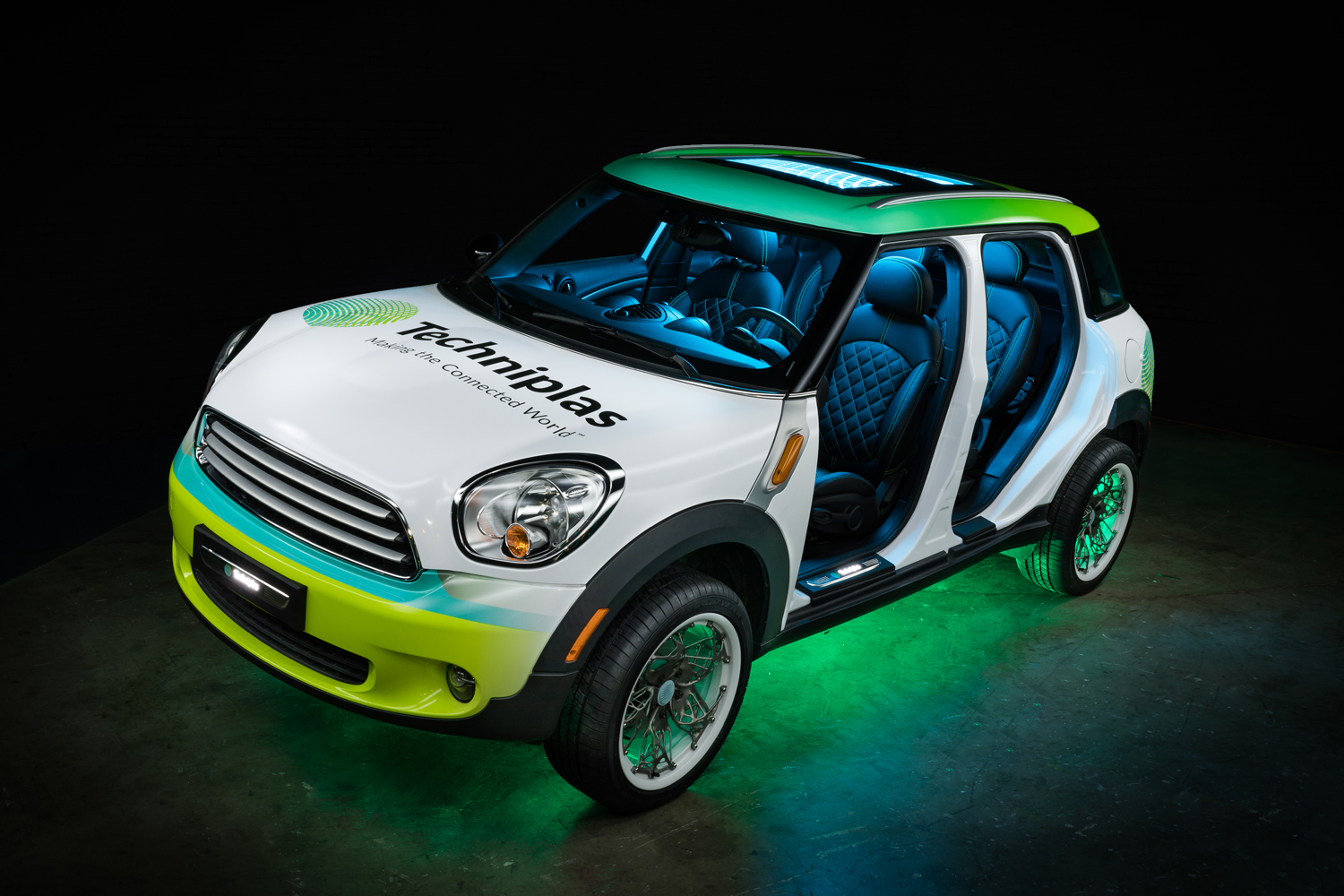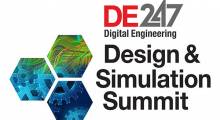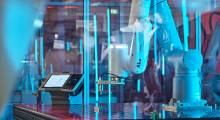What do you get when you combine additive manufacturing (AM), generative design, and artificial intelligence (AI)? The answer might be found in Techniplas Prime, an e-manufacturing portal from Techniplas, a Tier 1 automotive supplier.
“We've been practicing traditional lightweighting methods—for example, material substitution like replacing a metal structure with composites. But in the last one and a half year or so, our partnership with ParaMatters allowed us to incorporate generative design and topology optimization, so now, for projects awarded to Techniplas, we can look at all these lightweighting opportunities,” said Avi Reichental, CEO of Techniplas Digital.
With online mechanisms for instant quote and CAD file submission, Techniplas Prime has the look and feel of on-demand service providers. “This is not so much for on-demand but for ongoing automotive part supply,” clarified Reichental.
 Techniplas showcased its lightweighting technology with a prototype connected car at CES. Image courtesy of Techniplas.
Techniplas showcased its lightweighting technology with a prototype connected car at CES. Image courtesy of Techniplas.The origin of Techniplas
Techniplas has a long tradition in injection molded parts, with a history reaching back to the 1930s. One of the milestone events was the 2012 acquisition of Nyloncraft, an established supplier of components and modules to the automotive and commercial vehicle industry.
In 2017, Techniplas opened its first AM Center in Ventura, California. This marked the birth of Techniplas Digital, the division that would focus on innovation and transformation.
In January 2018, Techniplas recruited ParaMatters, a generative design software developer, to join its open innovation program. At CES 2018, the two companies showcased how the combined use of generative design and AM could lead to lightweighting possibilities.
In January 2018, Techniplas announced it was making its e-manufacturing platform, Techniplas Prime, powered by ParaMatters's generative design technology.
“What is unique about our approach, powered by ParaMatters, is that it's completely autonomous and AI-enabled. Once you set it up, it can run fully automatically,' said Reichental. “The Techniplas Prime cloud-hosted platform is currently a free service to the clients.”

Certified for automotive
Many generative design software tends to produce a series of answers—a family of design variants, all of which satisfy the user's demands for weight or mass reduction.
“We believe, at Techniplas, there's only one correct answer for a lightweighting or optimization problem. We also believe the answer should be a topology that's manufacturable—not something that will require additional work by a designer or engineer before it can be manufactured. The AI helps us find these definitive answers,” explained Reichental. “The AI also helps us figure out the optimal orientation and the type of support structures required to print the parts.”
Reichental sees Techniplas Prime as part of its outreach and demand-generation strategy, a conversation starter to initiate a lightweighting project.
“In automotive, the design process takes several years before the product [a new vehicle] comes to market, going through many iterations. For a company like ours, the lightweighting conversation is the start of a multiyear project,” he said.
Due to its offerings, Techniplas competes with on-demand service vendors such as Protolabs, Xometry, and Plethora. But as an automotive supplier with a proven track record, Techniplas has the advantage of the car makers' trust. Being an approved automotive supplier, it can also bypass the cumbersome new-supplier certification process required by big brand car makers.
The on-demand vendors focus largely on producing and delivering the part as specified by the buyer. It's not the norm for them to offer lightweighting consultation and services as part of the transaction. For Techniplas, its e-manufacturing platform is the pathway to a lightweighting project.
For more on Techniplas, see its demo video from CES below.
About the Author
Follow Robotics 24/7 on Linkedin
Article topics
Email Sign Up

















